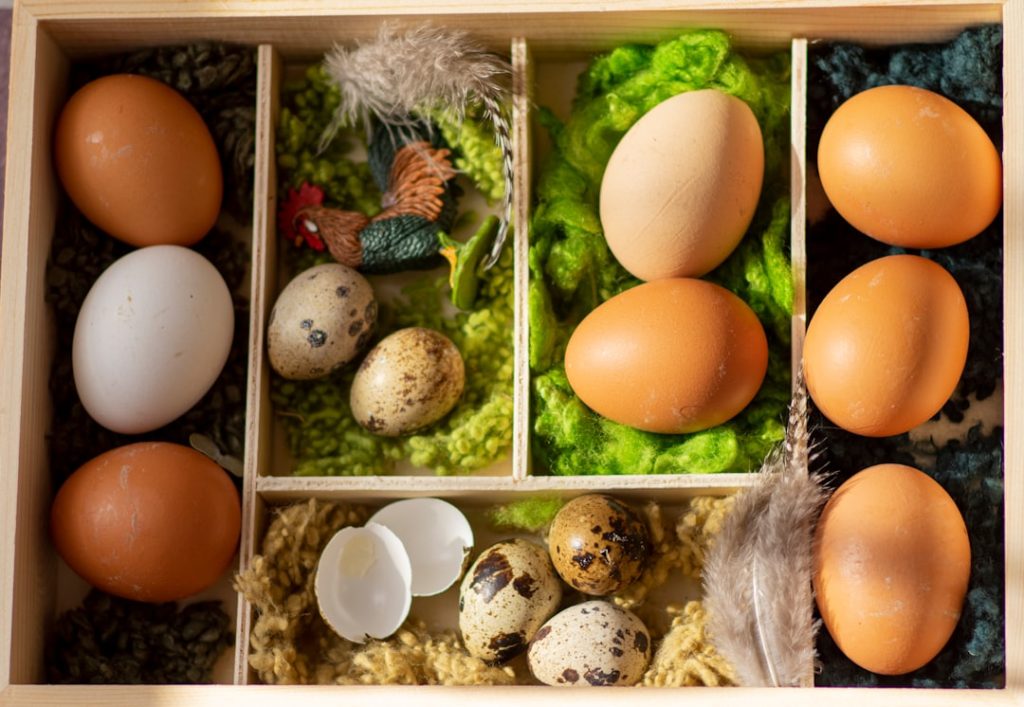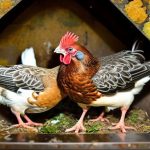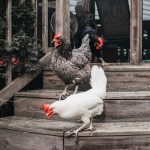When selecting chickens for a backyard coop, several factors should be considered. Climate is a crucial consideration, as some breeds are better adapted to cold weather, while others thrive in warmer conditions. The intended purpose of the chickens is also important, whether for egg production, meat, or dual-purpose use.
Temperament is another key factor, especially for households with children or other pets, where friendly and docile breeds are preferable. Available space should be taken into account, as some breeds are more suitable for free-ranging, while others adapt well to confined areas. After evaluating these factors, specific breed research can begin.
Popular choices for backyard coops include Rhode Island Red, Plymouth Rock, and Australorp, known for their hardiness, egg production, and friendly nature. For those seeking smaller breeds, Silkies or Bantams are options, notable for their distinctive appearance and suitability as pets for children. The optimal breed choice depends on individual requirements and preferences, necessitating thorough research and careful selection.
Table of Contents
- 1 Building a Coop
- 2 Feeding and Nutrition
- 3 Health and Disease Prevention
- 4 Egg Collection and Handling
- 5 Rearing Chicks
- 6 Predator Protection
- 7 FAQs
- 7.1 What are the basic requirements for keeping laying hens and rearing chickens?
- 7.2 What type of housing is suitable for laying hens and chickens?
- 7.3 What kind of nutrition do laying hens and chickens need?
- 7.4 How can I protect my laying hens and chickens from predators?
- 7.5 What are the common health issues in laying hens and chickens?
- 7.6 How can I encourage egg production in laying hens?
Key Takeaways
- When choosing a breed, consider factors such as climate, space, and egg production to find the right fit for your needs.
- Building a coop involves providing adequate space, ventilation, and protection from predators to ensure the health and safety of your chickens.
- Feeding and nutrition are crucial for maintaining healthy chickens, so provide a balanced diet with access to fresh water and appropriate supplements.
- Preventing diseases in chickens requires regular health checks, proper sanitation, and vaccination when necessary.
- Proper egg collection and handling techniques can help maintain egg quality and reduce the risk of contamination.
- When rearing chicks, provide a warm and safe environment, proper nutrition, and regular monitoring for their growth and development.
- Protecting chickens from predators involves securing the coop with sturdy fencing, locks, and possibly using deterrents such as motion-activated lights or sound devices.
Building a Coop
Providing Adequate Space and Ventilation
When designing your coop, it’s essential to ensure that your chickens have enough space to move around and roost comfortably. A good rule of thumb is to allow at least 2-3 square feet of space per bird inside the coop, and 8-10 square feet per bird in an outdoor run. Additionally, proper ventilation is crucial to prevent moisture buildup and ammonia levels from rising. This can be achieved through windows, vents, or a combination of both.
Protecting Your Chickens from Predators
Another critical aspect of building a coop is providing adequate protection from predators. This can be achieved by using sturdy materials such as hardware cloth or welded wire for fencing and covering windows with predator-proof mesh. Consider adding a secure door with a lock to prevent predators from gaining access to the coop.
Designing the Interior of the Coop
When it comes to the interior of the coop, make sure to include roosting bars for your chickens to perch on at night, as well as nesting boxes for egg-laying. If you live in a cold climate, consider adding insulation and heating elements to keep your chickens warm during the winter months. By taking these factors into consideration, you can create a safe and comfortable home for your backyard chickens.
Feeding and Nutrition
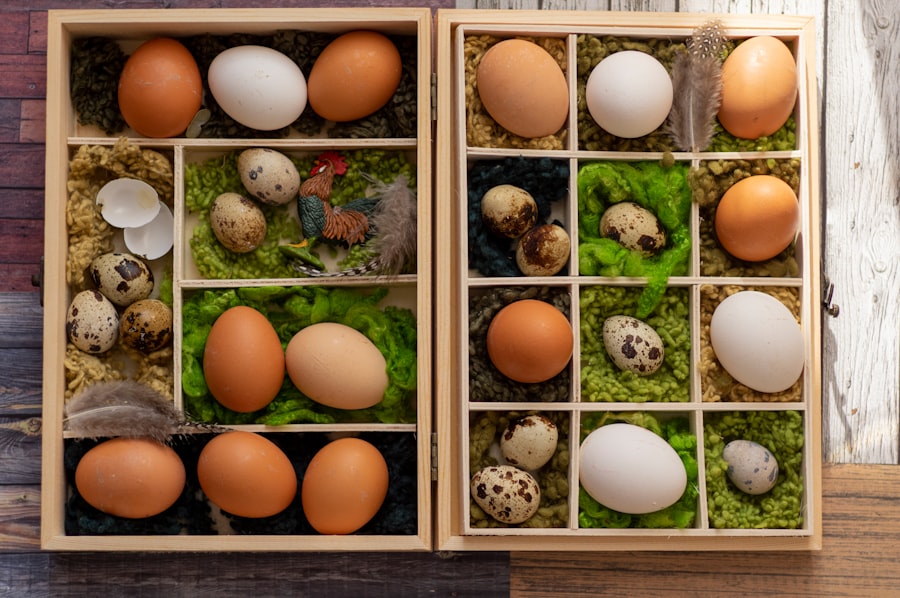
Proper feeding and nutrition are essential for keeping your backyard chickens healthy and productive. When it comes to feeding your chickens, it’s important to provide a balanced diet that meets their nutritional needs. A good quality commercial feed is a great starting point, as it contains all the essential nutrients that chickens need to thrive.
Look for a feed that is specifically formulated for laying hens if you are raising chickens for eggs, or a feed formulated for meat birds if you are raising chickens for meat. Additionally, consider supplementing your chickens’ diet with kitchen scraps, fruits, vegetables, and grains to provide variety and additional nutrients. In addition to providing a balanced diet, it’s important to ensure that your chickens have access to clean water at all times.
Chickens need water not only for hydration but also for regulating their body temperature and aiding in digestion. Make sure to regularly clean and refill waterers to prevent the buildup of bacteria and algae. Finally, consider providing access to grit and oyster shells to help with digestion and eggshell formation.
Grit helps chickens grind their food in their gizzards, while oyster shells provide calcium for strong eggshells. By paying attention to the feeding and nutritional needs of your backyard chickens, you can help them stay healthy and productive.
Health and Disease Prevention
Keeping your backyard chickens healthy is essential for their well-being and productivity. One of the best ways to prevent disease in your flock is through good management practices. This includes keeping the coop clean and dry, providing proper ventilation, and practicing good biosecurity measures.
Regularly clean out bedding, remove droppings, and disinfect feeders and waterers to prevent the buildup of bacteria and parasites. Additionally, consider implementing a regular deworming schedule and providing vaccinations if necessary to prevent common poultry diseases. Another important aspect of maintaining the health of your backyard chickens is monitoring their behavior and appearance.
Keep an eye out for any signs of illness such as lethargy, decreased appetite, abnormal droppings, or respiratory issues. If you notice any concerning symptoms, it’s important to isolate the affected bird and seek advice from a veterinarian who specializes in poultry health. Finally, consider providing regular access to dust baths for your chickens to help them maintain healthy feathers and skin.
By taking these proactive measures, you can help prevent disease and keep your backyard chickens healthy and thriving.
Egg Collection and Handling
Collecting and handling eggs from your backyard chickens is an important aspect of raising poultry. When it comes to collecting eggs, it’s best to do so at least once a day to prevent them from getting dirty or broken. Make sure to handle eggs gently and avoid washing them unless absolutely necessary, as washing can remove the protective bloom that helps keep bacteria out of the egg.
Instead, use a dry cloth or sandpaper to gently remove any dirt or debris from the eggs before storing them. When it comes to storing eggs, it’s important to keep them in a cool, dry place away from strong odors. Ideally, store eggs in the refrigerator at a temperature of around 45 degrees Fahrenheit with the pointed end down to help maintain freshness.
If you plan on selling or giving away eggs from your backyard flock, consider investing in an egg carton or packaging that provides protection during transport. Finally, when it comes to handling eggs from your backyard chickens, it’s important to practice good hygiene to prevent contamination. Wash your hands thoroughly before and after handling eggs, and make sure to clean any surfaces that come into contact with raw eggs.
By following these guidelines for egg collection and handling, you can ensure that your eggs are safe and of high quality.
Rearing Chicks
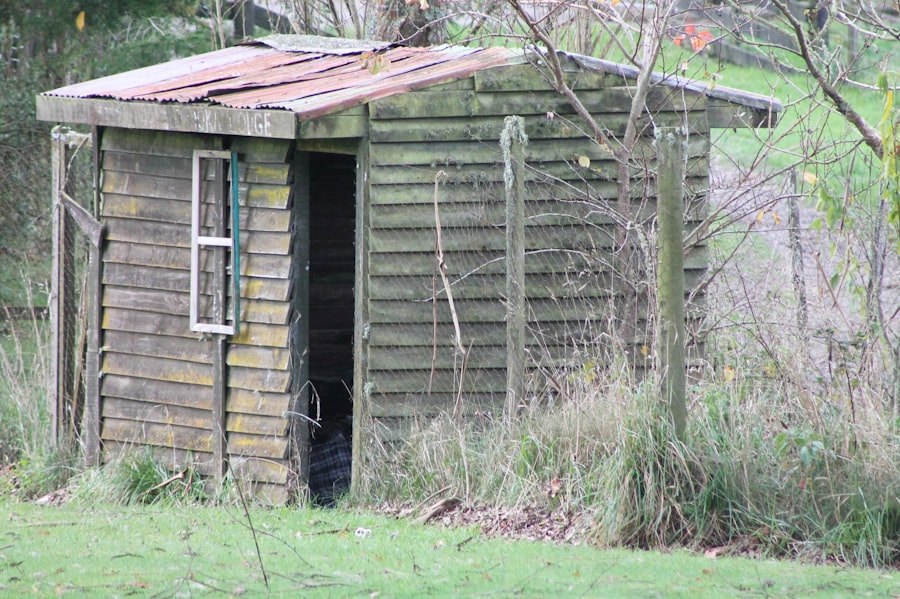
Creating a Safe and Warm Environment
When it comes to brooding chicks, it’s essential to provide a warm and draft-free environment with access to food and water. A heat lamp or brooder is necessary for maintaining the proper temperature (around 95 degrees Fahrenheit) during the first week of life, gradually decreasing by 5 degrees each week until they are fully feathered.
Nutrition for Healthy Growth
In addition to providing warmth, it’s crucial to offer a balanced diet specifically formulated for chicks to support their growth and development. Look for chick starter feed that contains essential nutrients such as protein, vitamins, and minerals necessary for healthy growth. Additionally, ensure that chicks have access to clean water at all times and consider adding electrolytes or probiotics to their water to support their immune system.
Transitioning to a Larger Space
As chicks grow, they will eventually outgrow their brooder and will need to be transitioned to a larger coop or outdoor space. This transition should be done gradually to allow chicks to acclimate to their new environment while still providing warmth during cooler temperatures.
Predator Protection
Protecting your backyard chickens from predators is essential for their safety and well-being. Common predators such as raccoons, foxes, hawks, and snakes can pose a threat to your flock if proper precautions are not taken. One of the best ways to protect your chickens from predators is by securing their coop with sturdy fencing and predator-proof mesh on windows and doors.
Additionally, consider adding motion-activated lights or alarms around the coop to deter nocturnal predators. Another important aspect of predator protection is providing secure housing for your chickens at night. Make sure that doors are securely locked with predator-proof latches and consider adding a predator apron or burying wire mesh around the perimeter of the coop to prevent digging animals from gaining access.
Finally, consider adding a livestock guardian animal such as a dog or a guard goose to help deter predators from approaching the coop. These animals can provide an added layer of protection by alerting you to potential threats and deterring predators from approaching the coop. By taking these proactive measures for predator protection, you can help ensure the safety and security of your backyard flock.
If you’re looking for tips on how to keep laying hens and rear chickens, you might also be interested in learning about the best kind of coop for chickens. Check out this article on Poultry Wizard that discusses the different types of coops and which one might be best for your flock. It’s important to provide a safe and comfortable living space for your chickens, and this article can help you make the right choice.
FAQs
What are the basic requirements for keeping laying hens and rearing chickens?
To keep laying hens and rear chickens, you will need a suitable coop or housing, access to fresh water, proper nutrition, and protection from predators. Additionally, you will need to provide a suitable environment for the chickens to lay eggs and raise their young.
What type of housing is suitable for laying hens and chickens?
A suitable coop or housing for laying hens and chickens should provide protection from predators, adequate space for the number of birds, good ventilation, and nesting boxes for the hens to lay eggs. The coop should also be easy to clean and maintain.
What kind of nutrition do laying hens and chickens need?
Laying hens and chickens require a balanced diet that includes a good quality layer feed, access to fresh water, and occasional treats such as fruits and vegetables. It’s important to provide the right amount of protein, calcium, and other essential nutrients for their growth and egg production.
How can I protect my laying hens and chickens from predators?
To protect laying hens and chickens from predators, it’s important to secure the coop with sturdy fencing, lockable doors, and predator-proof latches. Additionally, you can use motion-activated lights, guard animals, or electric fencing to deter predators.
What are the common health issues in laying hens and chickens?
Common health issues in laying hens and chickens include respiratory infections, parasites, and egg-related problems such as egg binding. It’s important to monitor the health of the birds regularly, provide proper nutrition, and seek veterinary care when needed.
How can I encourage egg production in laying hens?
To encourage egg production in laying hens, it’s important to provide a balanced diet, access to fresh water, and a comfortable environment with nesting boxes. Additionally, ensuring that the hens are not stressed and providing proper lighting can also help boost egg production.
Meet Walter, the feathered-friend fanatic of Florida! Nestled in the sunshine state, Walter struts through life with his feathered companions, clucking his way to happiness. With a coop that’s fancier than a five-star hotel, he’s the Don Juan of the chicken world. When he’s not teaching his hens to do the cha-cha, you’ll find him in a heated debate with his prized rooster, Sir Clucks-a-Lot. Walter’s poultry passion is no yolk; he’s the sunny-side-up guy you never knew you needed in your flock of friends!

